Production Introduction
This deckel is made from 1.4571 stainless steel by CNC turning and drilling the holes. It deliver the perfect balance of durability, precision, and adaptability, making them indispensable in sectors where performance under stress is paramount.
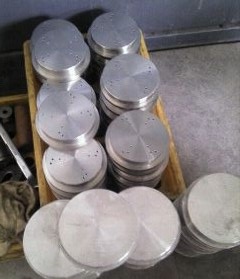
Material and process
Material advantage
The deckel is made from 1.4571 stainless steel rod, also known as 316Ti material. It's a martensitic-austenitic alloy celebrated for its exceptional corrosion resistance, high tensile strength which is up to 650 MPa, and stability at elevated temperatures. These properties make it ideal for parts exposed to harsh environments, where resistance to rust, and oxidation is non-negotiable. Below picture is the 1.4571 stainless steel rod with black surface:
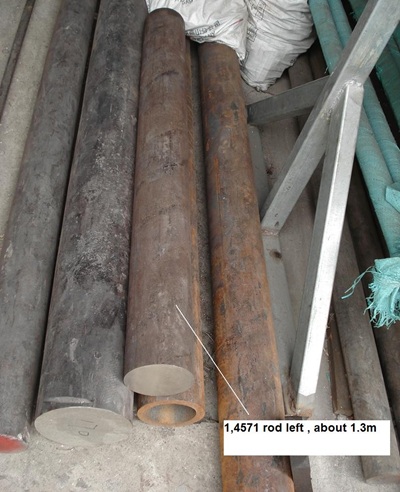
Drawing analysis
Here is the deckel drawing:
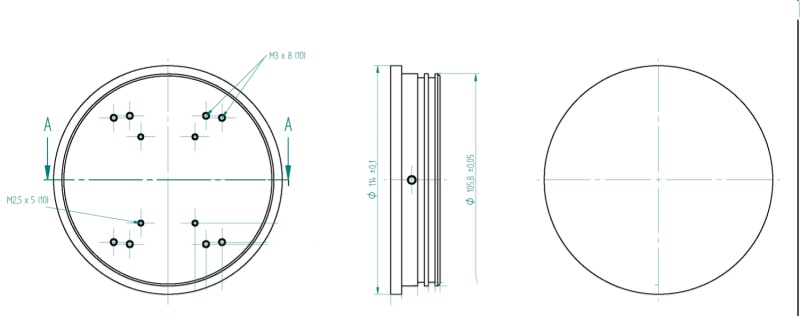
Machining Process
It is made of bar stock with an outer diameter of 120mm, the sawing machine cuts the material into pieces.
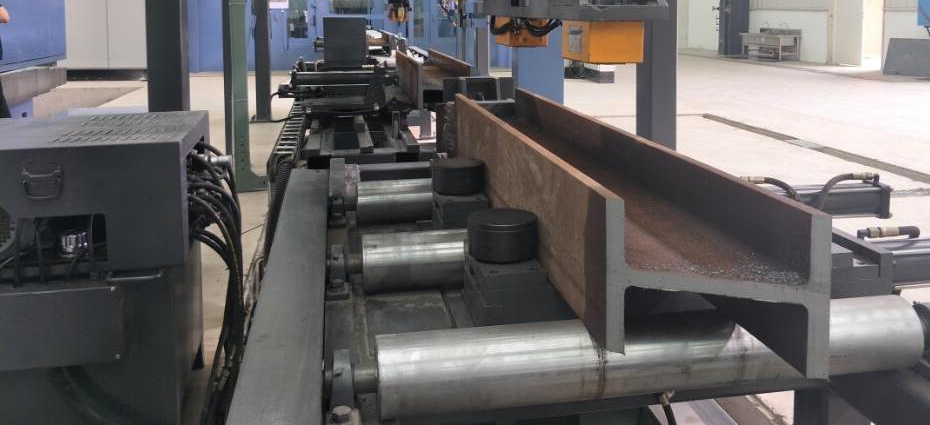
After cutting into pieces, CNC machining is used to turn the outer circle.
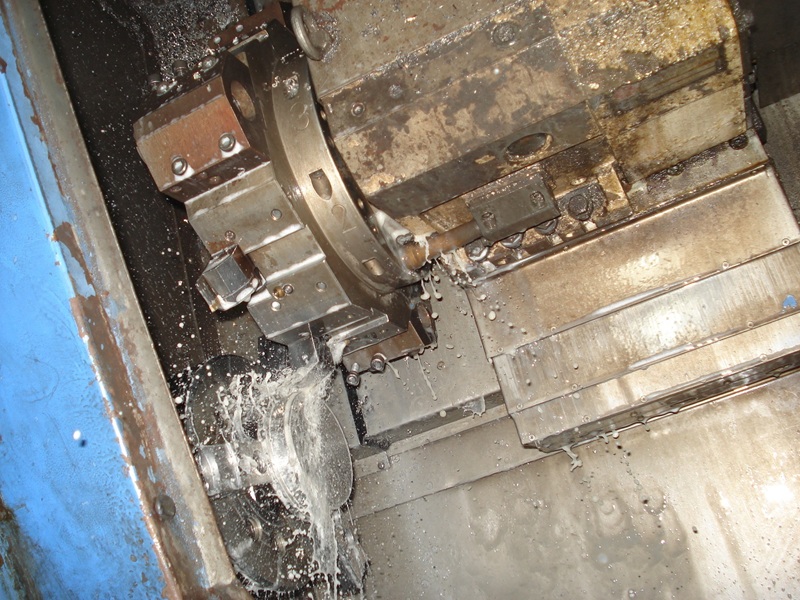
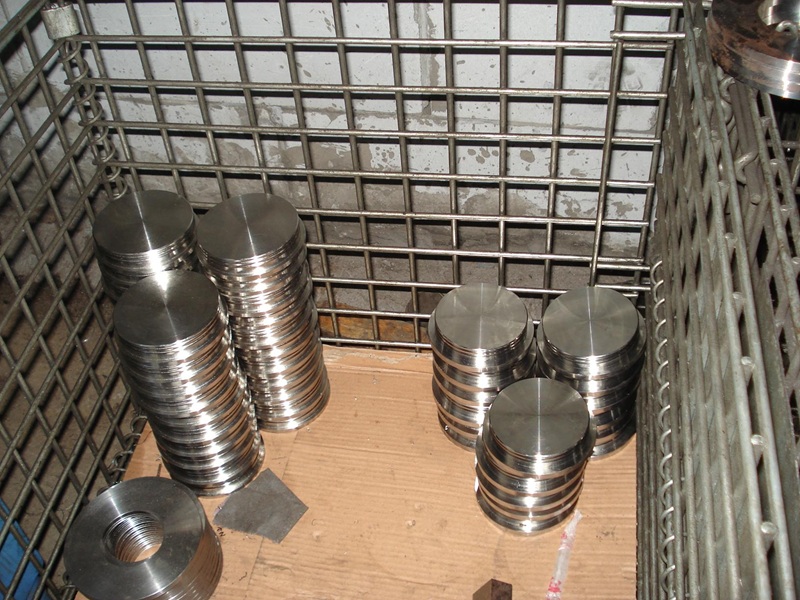
The most challenging aspect of this manufacturing process lies in machining many small holes and threads, with the M2.5 threading operation standing out as an especially hard task. These tiny features demand extraordinary precision: the holes themselves are often just 2–3mm in diameter, requiring drill bits and taps that are slender, fragile, and highly easy to deflection under even minimal pressure. For M2.5 threads, the tap's cutting edges are razor-thin, struggling to withstand the intense friction and torque generated when cutting into tough materials like stainless steel or alloyed metals. Imported tap are used, the workers have to be very careful to strike the threads well.
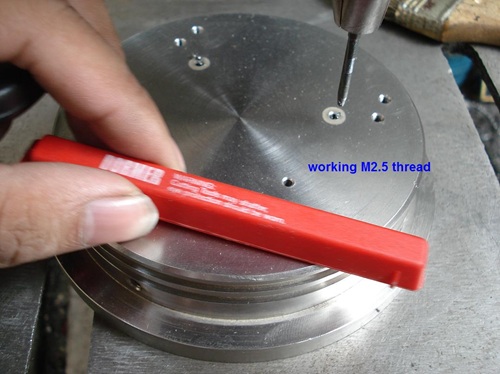
There are several factors like chip evacuation: in such small holes, metal chips have little space to escape, often block the tap's flutes and causing it to bind. This binding, in turn, leads to sudden torque spikes that snap the tap outright, has resulted in numerous broken tools during production. Each broken tap risks damaging the workpiece: fragments can get wedged deep within the threaded hole, scoring the already delicate threads or even warping the surrounding material, threatening to render the entire part scrap.
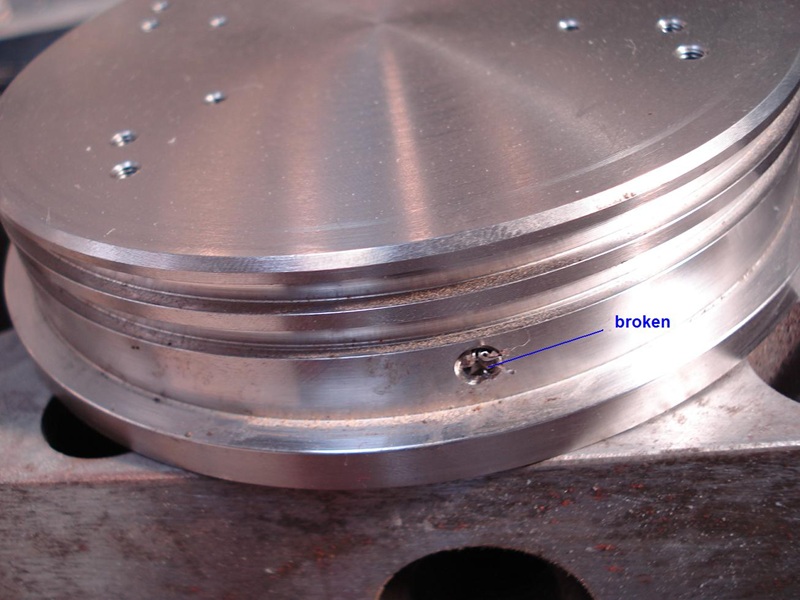
To address this critical issue, we turned to electrical pulse machining , a specialized technique that save the damaged workpieces without compromising their integrity. EPM works by using high-frequency electrical discharges to erode the broken tap fragments: a precision electrode, shaped to match the hole's dimensions, is positioned near the broken tap, and controlled sparks between the electrode and the metal fragment vaporize small particles of the tap, gradually dissolving it away. This process is non-contact and generates minimal heat, ensuring the workpiece's base material, including the partially formed M2.5 threads remains unharmed.
Below are finished deckel:
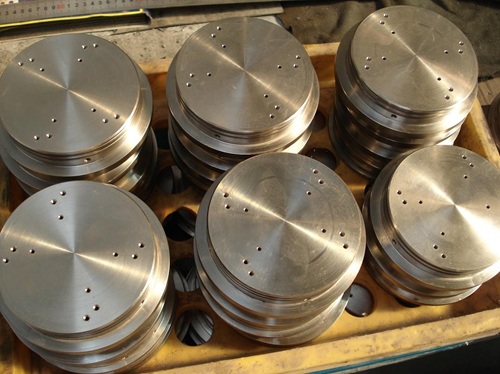
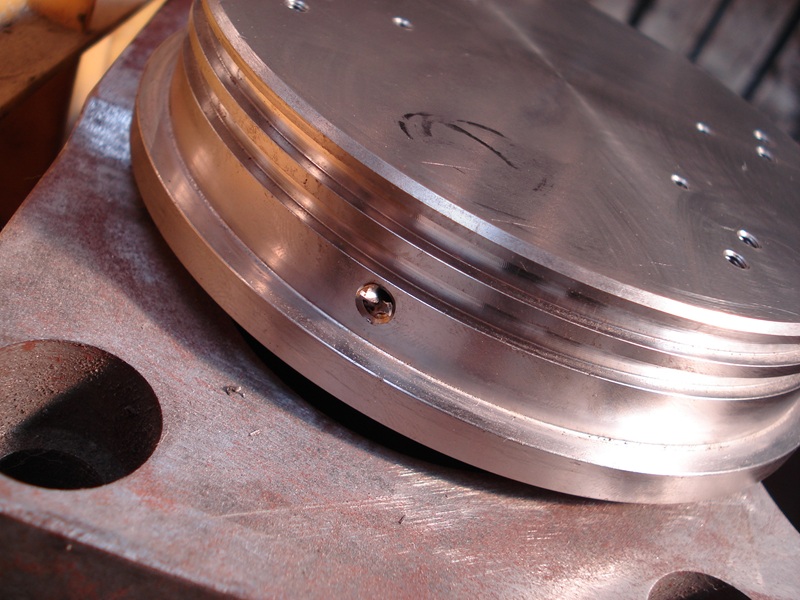
Packing
Before packaging, we conduct careful thread inspections using plug gauges to ensure each threaded component meets precise dimensional standards.

Once the threads pass inspection, the parts are packed into sturdy wooden crates. These crates are constructed from high-quality composite board, minimizing the risk of scratches, dents, or thread damage during handling.
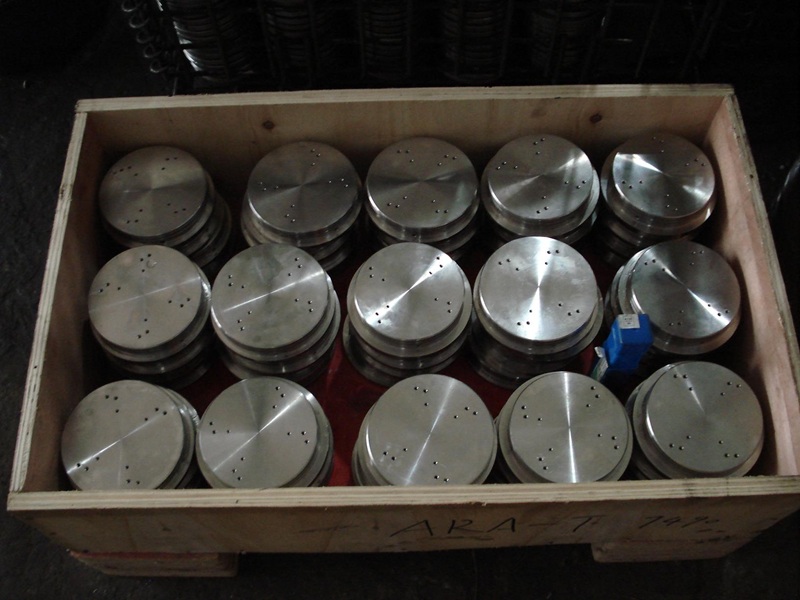
Ningbo Joyo Metal Products Co.,Ltd. is bold in challenging and relentless in pursuing breakthroughs. This spirit is woven into every stage of our work, whether it's tackling intricate machining tasks that others shy away from, such as drilling micro-sized holes in high-hardness alloys or perfecting ultra-precise threads that push the limits of tolerance, or exploring innovative techniques to overcome production bottlenecks.
English
العربية
Français
Русский
Español
Português
Deutsch
italiano
日本語
한국어
Nederlands
Tiếng Việt
ไทย
Polski
Türkçe
አማርኛ
ພາສາລາວ
ភាសាខ្មែរ
Bahasa Melayu
ဗမာစာ
தமிழ்
Filipino
Bahasa Indonesia
magyar
Română
Čeština
Монгол
қазақ
Српски
हिन्दी
فارسی
Kiswahili
Slovenčina
Slovenščina
Norsk
Svenska
українська
Ελληνικά
Suomi
עברית
Dansk
Afrikaans
Gaeilge
Eesti keel
latviešu
Беларуская мова
Български
Català
Lietuvių
Lëtzebuergesch
Македонски











































